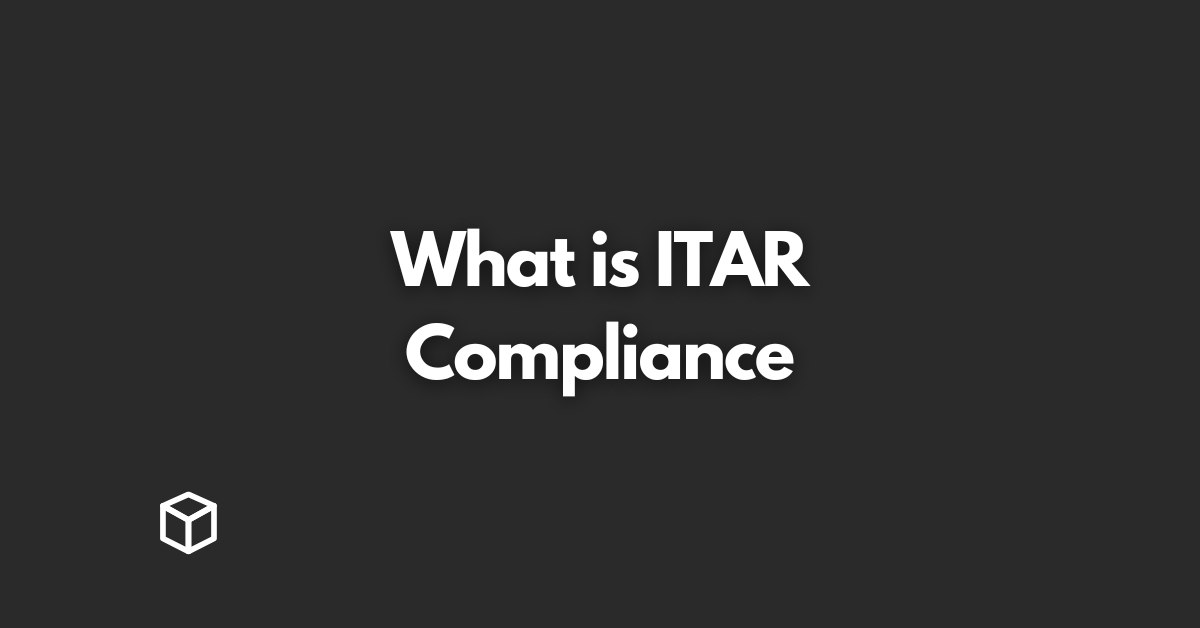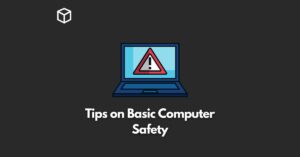In today’s globalized economy, many businesses are involved in international trade, whether they are exporting goods or services to other countries or importing products from abroad.
However, for companies that deal with certain types of items and information, compliance with the International Traffic in Arms Regulations (ITAR) is mandatory.
In this article, we’ll take a closer look at ITAR and explain what businesses need to know in order to comply with the regulations.
What is ITAR?
ITAR is a set of regulations set forth by the U.S. State Department that regulates the export and import of defense-related items and services.
These items and services are listed on the U.S. Munitions List (USML) and are considered to be “defense articles” or “defense services” under ITAR.
Compliance with ITAR is mandatory for companies that deal with items and information listed on the USML.
Failure to comply with ITAR can result in significant penalties, including fines, prison sentences, and even the revocation of export privileges.
Overview of ITAR regulations
ITAR regulations apply to any person or company that engages in the manufacture, export, or import of defense articles or defense services.
This includes manufacturers, exporters, and importers of defense articles and defense services, as well as brokers and freight forwarders who arrange for the transportation of defense articles or defense services.
Types of items and information regulated by ITAR
The USML includes a wide range of items and information, including weapons, military equipment, and technical data.
Examples of items and information regulated by ITAR include firearms, ammunition, body armor, military vehicles, and software and technical data related to weapons systems.
ITAR Compliance Requirements
Registration with the U.S. State Department
Companies that engage in the manufacture, export, or import of defense articles or defense services must register with the U.S. State Department.
It includes providing information about the company, including its name, address, and contact information, as well as information about the types of items and services the company deals with.
Obtaining licenses and/or approvals for exports
In order to export defense articles or defense services, companies must obtain licenses or approvals from the U.S. State Department.
This includes providing detailed information about the proposed export, including the end-use and end-user of the items or services.
Keeping accurate records and documentation
Companies must keep accurate records and documentation related to their activities under ITAR.
This includes records of exports and imports, licenses and approvals, and other transactions related to defense articles and defense services.
Ensuring compliance with end-use and end-user restrictions
Companies must ensure that defense articles and defense services are only exported or imported for approved end-uses and end-users.
This includes ensuring that items or services are not exported or imported to countries or organizations that are subject to U.S. sanctions or embargoes.
Implementing security measures to protect controlled information
Companies must take steps to protect controlled information from unauthorized access or disclosure.
This includes implementing security measures such as physical and digital security protocols, as well as ensuring that employees and contractors who have access to controlled information are properly vetted and trained.
The Consequences of Non-Compliance
- Civil penalties: Companies that fail to comply with ITAR regulations can be subject to civil penalties, including fines of up to $1 million per violation.
- Criminal penalties: Willful violations of ITAR regulations can also result in criminal penalties, including prison sentences of up to 20 years.
- Revocation of export privileges: In some cases, the U.S. State Department may revoke a company’s export privileges, effectively banning them from exporting defense articles or defense services.
- Reputation damage: Non-compliance with ITAR regulations can also result in significant reputation damage, as companies may be perceived as untrustworthy or unreliable by customers, partners, and other stakeholders.
How to Ensure ITAR Compliance
Conducting regular self-audits
Companies should regularly conduct self-audits to ensure that they are in compliance with ITAR regulations.
It includes reviewing records, licenses, and approvals, as well as ensuring that security measures are in place and being properly implemented.
Providing training for employees
Companies should ensure that employees and contractors who have access to controlled information are properly trained on ITAR regulations and their responsibilities.
Working with ITAR compliance experts
Companies may also work with ITAR compliance experts to ensure that they are in compliance with the regulations.
Compliance experts can help companies to understand the regulations and develop compliance plans.
Keeping up to date with changes to ITAR regulations
ITAR regulations are subject to change, so companies should stay informed about any updates or changes to the regulations.
Conclusion
As we can see ITAR compliance is a crucial aspect to be considered by businesses involved in international trade, especially those that deal with defense-related items and services.




